China-Egypt relations: Fast lane for now
The China-Egypt relationship is growing from strength to strength, as Beijing strives to lead the global south and Egypt sees China as a crucial development partner, says US academic John Calabrese.
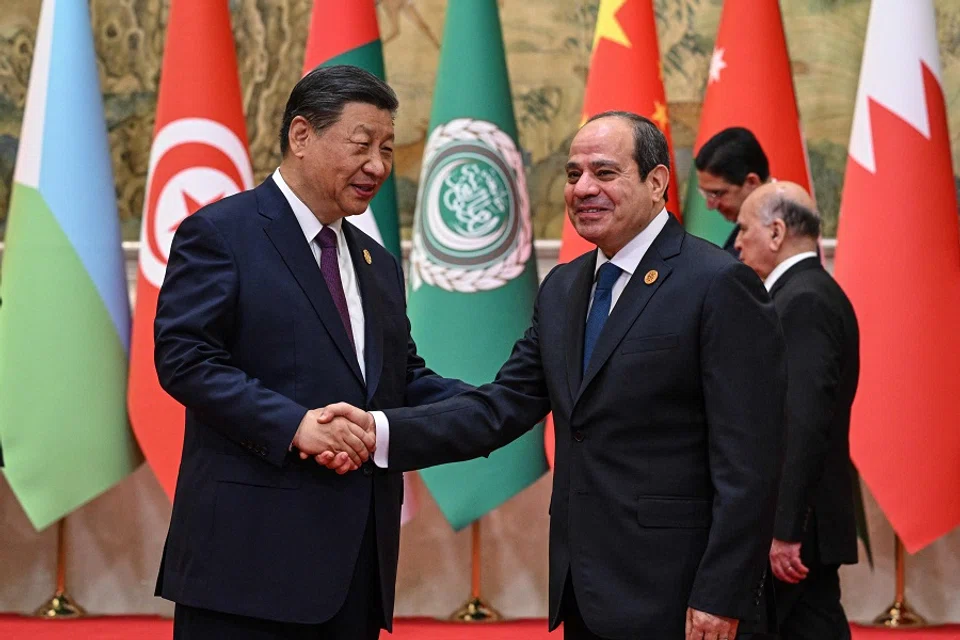
In a China Daily article in April, China’s ambassador to Egypt and representative to the League of Arab States, Liao Liqiang, was quoted as saying that the Sino-Egyptian relationship ”has entered the fast lane”.
The next month, meeting on the sidelines of the China-Arab States Cooperation Forum, Chinese President Xi Jinping and Egyptian President Abdel Fattah el-Sissi signed several agreements to advance bilateral cooperation. The signing ceremony marked el-Sissi’s eighth trip to Beijing since he became president in 2014 following a coup and coincided with the tenth anniversary of the Egypt-China comprehensive strategic partnership.
The Sino-Egyptian relationship has been defined by a decade of accomplishments, fueled by complementary visions for the future, ambitious political leaders, convergent business interests, and compatible governing regimes.
From 2017 to 2022, Chinese investment in Egypt surged by 317%, while US investment decreased by 31%.
Economic ties strengthen amid convergence of business interests
According to Egypt’s Central Agency for Public Mobilization and Statistics (CAPMAS), the volume of trade exchange between Egypt and China has increased markedly. The trade exchange between Egypt and China reached US$13.9 billion in 2023, albeit down from US$16.6 billion in 2022. From 2017 to 2022, Chinese investment in Egypt surged by 317%, while US investment decreased by 31%. Chinese investments reached US$956.7 million during 2022-2023, up from US$563.4 million in 2021-2022.
Chinese enterprises have increasingly made their presence felt in Egypt’s infrastructure and industrial development. Chinese enterprises have been pivotal in building Egypt’s first electrified light rail transit system, establishing Africa’s largest vaccine storage centre, and constructing a massive cement plant with six production lines. The Chinese State Construction and Engineering Company (CSCEC) is also building, in phases and with Chinese financing, the Central Business District of Egypt’s New Administrative Capital.
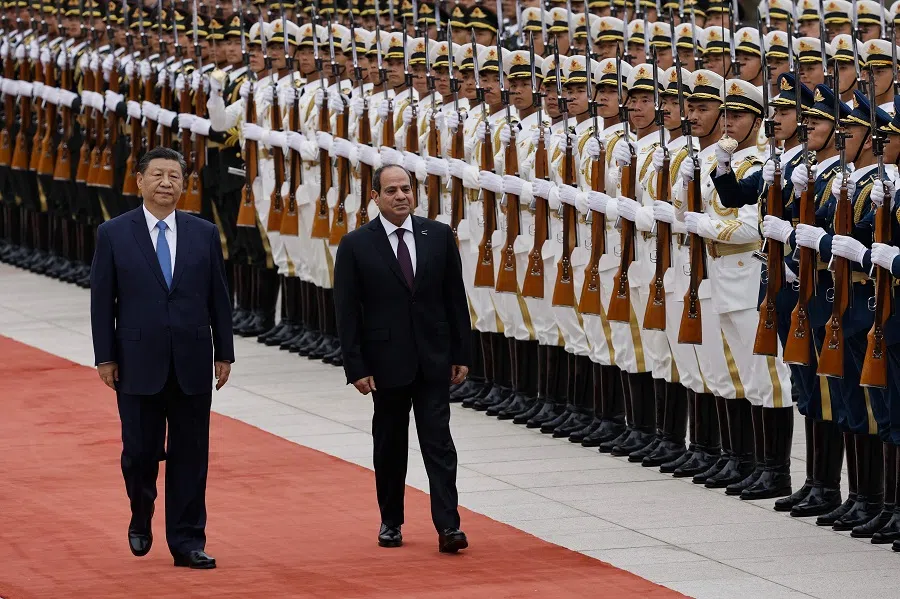
The Suez Economic and Trade Cooperation Zone (SETC-Zone), a major hub for Chinese products, aligns with the Suez Canal Corridor Project’s development and hosts over 140 Chinese companies. Jushi Egypt has become the largest fiberglass producer in Africa. In March, China’s Xinxing Ductile Iron Pipes Corporation announced a US$2 billion investment to build a cast iron pipe and steel production facility, aiming to make Egypt a hub for cast iron pipe production.
To support projects agreed upon at the third BRI summit in August 2023 — amid Egypt’s economic distress and China’s own slowdown — the China Development Bank (CDB) nonetheless injected US$956 million into Egypt’s central bank. By the third quarter of 2023, CDB’s loans to Egypt had surpassed $6.5 billion.
China’s leading state-owned shipping companies — Hutchison Port Authority, COSCO Shipping Ports, Shenzhen Yantai Port Group, and Chinese Harbor State Company (CHEC) — have heavily invested in ports along the [Suez Canal] corridor.
Importance of the Suez Canal Corridor
The Suez Canal Corridor has emerged as the central axis for ”strategic synergy”. The corridor has received strong and sustained support at the leadership level for aligning Egypt’s “Vision 2030” and China’s Belt and Road Initiative (BRI). China’s leading state-owned shipping companies — Hutchison Port Authority, COSCO Shipping Ports, Shenzhen Yantai Port Group, and Chinese Harbor State Company (CHEC) — have heavily invested in ports along the corridor.
Additionally, China’s TEDA Corporation and dozens of other Chinese companies have invested and participated in construction projects to transform the corridor into an international economic hub, integrating harbour, logistics, trade zones, and industrial parks. Hutchison’s development of container terminals at Ain Sokhna Port on the Red Sea (set to start operations in mid-2025) and at Alexandria Port, promise to greatly enhance Egypt’s maritime commerce while helping drive the expansion of China’s Mediterranean trade.
Multiple cooperation frameworks propel progress
The Sino-Egyptian relationship features a multi-tiered architecture, functioning through bilateral and multilateral channels. At the bilateral level, the promotion of political and economic cooperation is spearheaded on the Egyptian side by the China Affairs Group, under the leadership of the prime minister. The relationship is anchored by joint committees, working groups, and coordination committees in diverse fields, including the China–Egypt Economic and Trade Joint Commission and the China–Egypt Defence Cooperation Committee.
The growing interest in China among the public and elites is also reflected in stronger educational links.

Ain Shams University, Al-Azhar University, Cairo University, and the Egyptian Chinese University (ECU) in Cairo offer China programs. Beyond universities, Egyptians can learn Chinese at the Chinese Cultural Center and the Egypt-China Friendship Association. Comprehensive training programmes for Egyptian officials enhance skills in healthcare, technical education, e-commerce, farming, modern irrigation technology, city planning, and green energy.
Sino-Egyptian relations are further advanced through multilateral platforms such as the China-Arab Cooperation Forum and the China-Africa Cooperation Forum, as well as through BRICS and by virtue of Egypt’s role as an observer and dialogue partner of the Shanghai Cooperation Organisation (SCO).
Mutual support for core interests and major concerns
Shared concerns and aligned positions are most evident regarding the war in Gaza. The two sides have issued joint statements expressing concern about the region-wide escalation of the conflict, particularly in the Red Sea; called repeatedly for an immediate and comprehensive cease-fire; and affirmed that a “two-state solution” is the fundamental guarantor of restoring stability and establishing peace and security in the region.
China and Egypt are expanding horizons for “win-win” cooperation. Egypt’s latest remote sensing satellite, MisrSat-2, launched in December 2023 from China’s Jiuquan Satellite Launch Center aboard the Long March-2C carrier rocket, was an important milestone in Sino-Egyptian space technology development and cooperation. So, too, is the project underway to provide Egypt with the integrated capacity to assemble and test satellites.
Also significant are joint efforts in “new energy”, notably the US$6.75 billion agreement between Egypt’s Suez Canal Economic Zone and China State Energy Engineering Corporation (CSCEC) for a green ammonia and green hydrogen project. Discussions in March were centred on establishing a Chinese industrial zone along the Mediterranean, which would include traditional and high-tech sectors to cater to both local and Euro-Atlantic markets.
For China, deepening ties with Egypt presents strategic opportunities, notably in enhancing access to key markets and resources in the Middle East, the Mediterranean and Africa.
A careful balance
While deepening ties with China offers significant economic and strategic benefits, Egypt must carefully navigate the risks of economic dependency, debt sustainability, and increased scrutiny and pressures from Western partners.
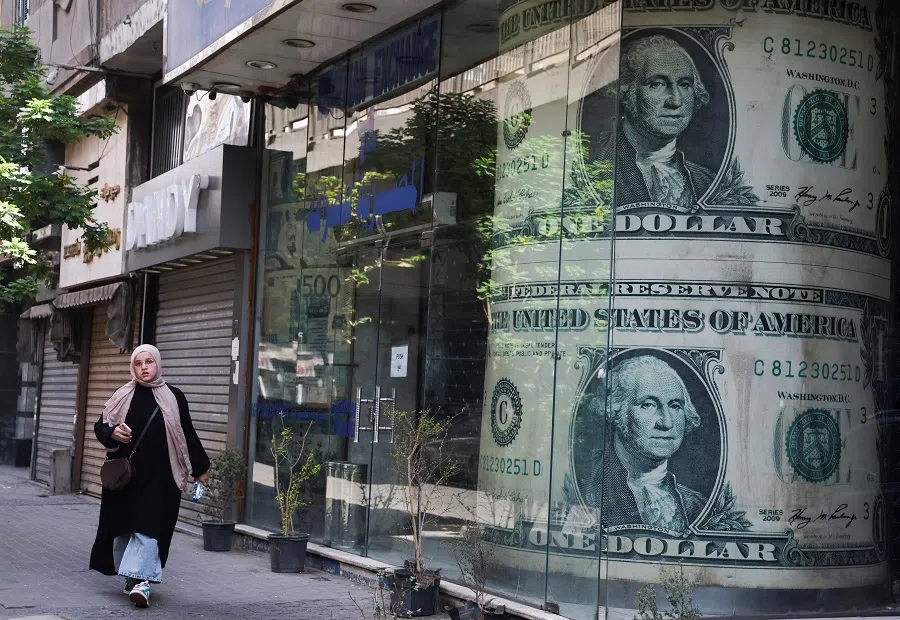
Cairo has managed multipolarity by adopting a diversified and balanced foreign policy, leveraging Egypt’s strategic position to benefit from US-China competition. To date, this approach has been effective: despite tensions with Washington, the US remains Egypt’s largest source of security assistance, while China has become a key economic partner.
Meanwhile, polls from November 2021, July 2022, and July/August 2022 indicate that a narrow majority of Egyptians regard relations with both countries as equally important. Nonetheless, US favourability may decline due to its Gaza policies, which China could exploit, given the alignment of its position on the conflict with those of Egypt and other Arab states.
For China, deepening ties with Egypt presents strategic opportunities, notably in enhancing access to key markets and resources in the Middle East, the Mediterranean and Africa. But instability or economic downturns in Egypt could impact the operational environment and profitability of Chinese ventures, straining bilateral relations, especially if the mega-projects on which they have partnered fail to meet expectations.
Despite the inherent risks and uncertainties, China-Egypt relations have “entered the fast lane”. China’s support for Egypt is steadfast, especially as Beijing seeks to assert its leadership in the global south and shape a new international order, while Egypt maintains a firm conviction that China is a crucial partner in its development.

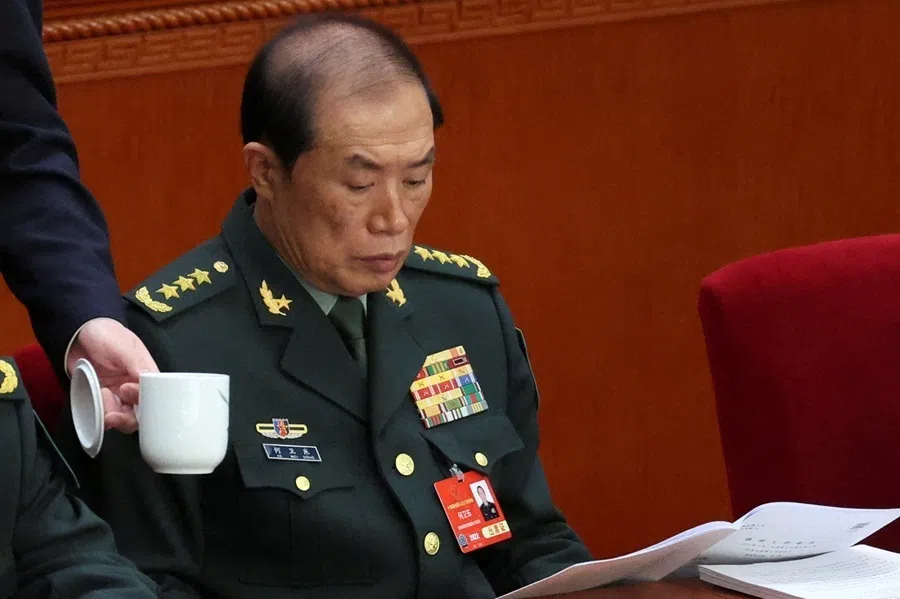
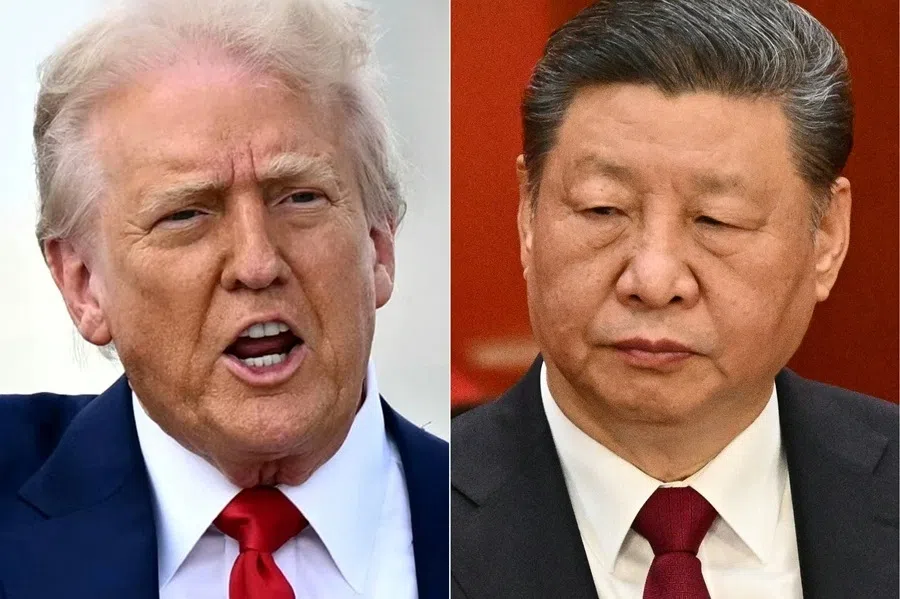
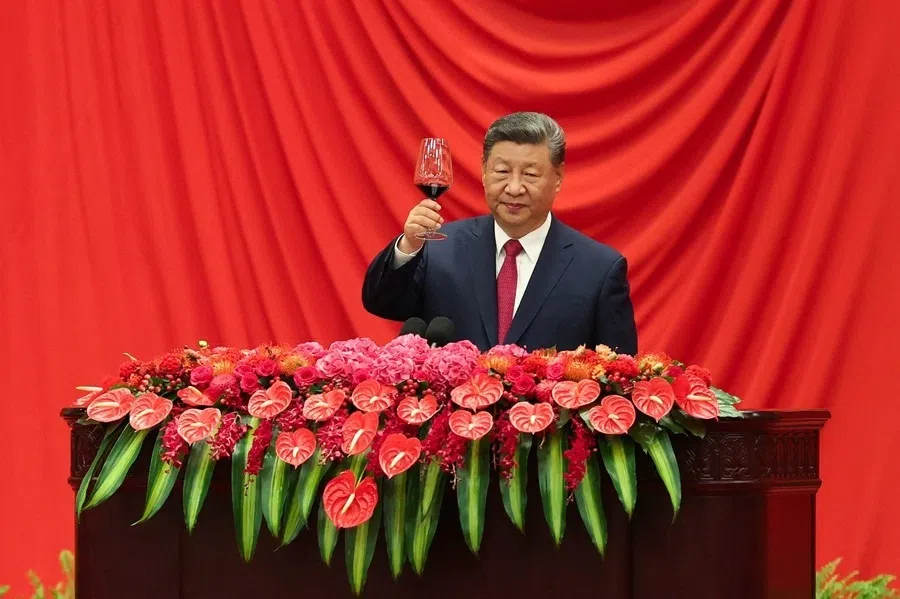
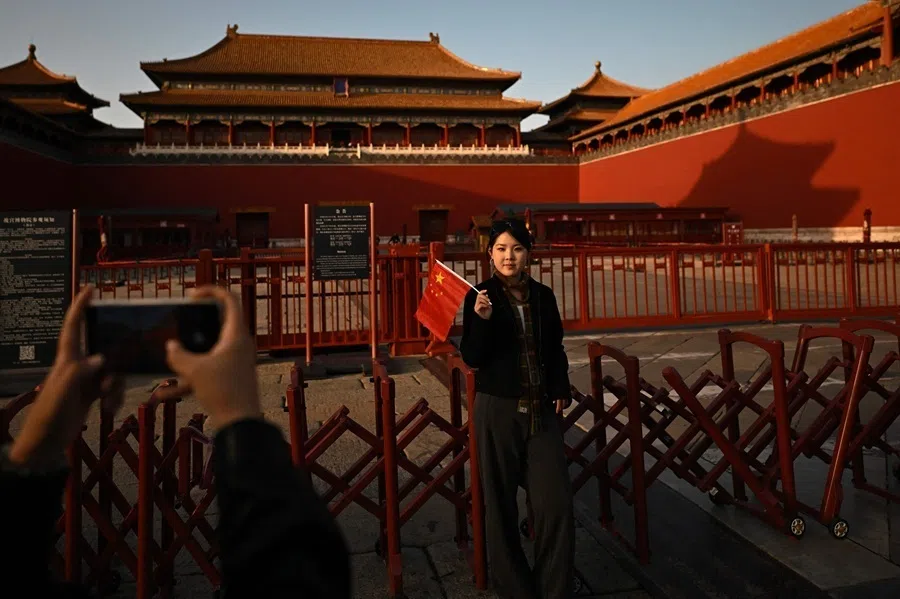
![[Vox pop] Chinese parenting: Tough love or just tough?](https://cassette.sphdigital.com.sg/image/thinkchina/b95bd53631df26290df995775a40e36709bf8dc8e3759460276abd5c426b20b6)